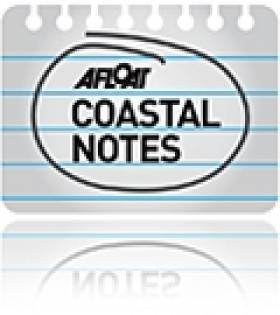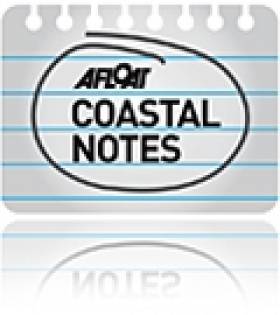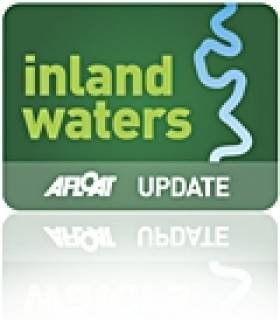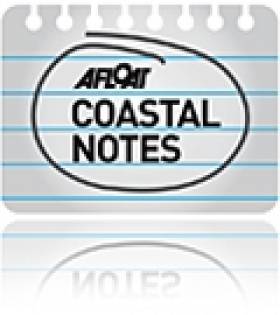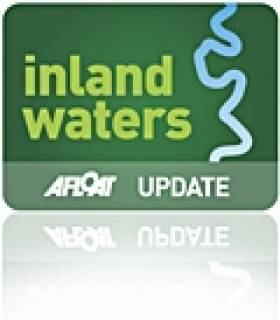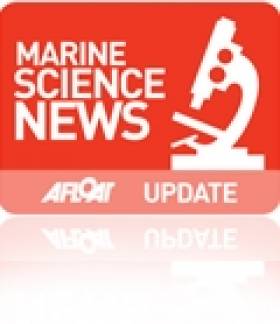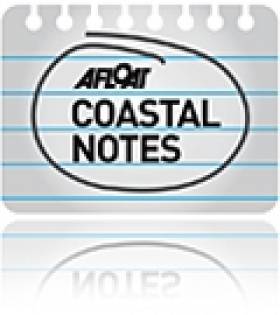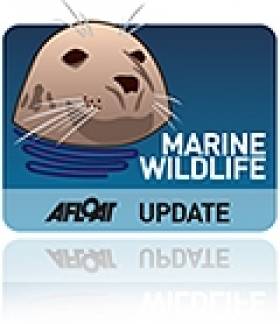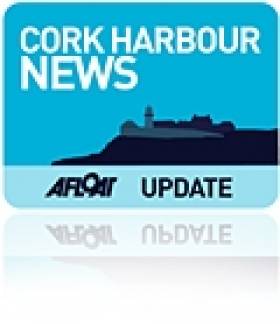Displaying items by tag: pollution
#CoastalNotes - Seven large urban coastal areas are among more than 40 towns nationwide still seeing untreated sewage released into the water supply, the Environmental Protection Agency (EPA) warns.
According to RTÉ News, the EPA says the current situation is in breach of an EU directive issued more than two decades ago.
Yet three large towns – Killybegs in Co Donegal, Ringaskiddy on Cork Harbour and Arklow in Co Wicklow - have been waiting some 13 years for secondary wastewater treatment facilities.
Moreover, it's been found that nearly a third of established secondary treatment plants nationwide do not meet the EU's main effluent standards, prompting serious pollution concerns.
Clifden in Co Galway and the Co Cork towns of Youghal, Cobh and Passage West have also been identified among the bigger urban areas still discharging untreated wastewater into coastal waters.
The news comes just weeks after it was discovered that effluent from an entire town in Co Galway is being piped into a Special Area of Conservation.
RTÉ News has more on the story HERE.
Shoreline Litter Rises In Latest Coastwatch Survey Results
#CoastwatchSurvey - Last year's hot summer resulted in an increase of discarded drinks bottles around Ireland's coastline, according to the results of the latest Coastwatch survey.
The Irish Times reports on the findings of the Autumn 2013 coastal count, which concluded in mid-October - and the outcome shows some correlation between the unusually warm and sunny summer months that brought people to the seaside in droves, and an increase in both plastic and glass bottles littered on the shoreline.
The survey results also confirmed the rise in the numbers of jellyfish in Ireland's warming waters, as previously reported on Afloat.ie.
The Irish Times has more on the story HERE.
Parasite Outbreaks In Roscommon Water Supply
#Pollution - Three dead calves found in a stream that flows into one of Roscommon town's main water sources have been alleged as the source of two outbreaks of the parasitic disease cryptosporidiosis that have seen 13 people treated for stomach-related complaints, as RTÉ News reports.
Council visits to farms in the catchment area of Roscommon's central water supply scheme have since identified 11 cases of poor management of run-off out of 66 occasions.
Residents in Roscommon and Boyle are still being asked to boil all tap water at home until further notice, and have been warned that home filters will not make the water potable.
#CoastalNotes - More than 97% of Ireland's bathing areas meet the EU's minimum standards for water quality in new figures announced today 2 May - though 21 waters have been stripped of the top ranking.
The latest figures for 2012 were released today in a new report from the Environmental Protection Agency (EPA), whose director general Laura Burke said that the "quality of Ireland's bathing waters remained very high despite remarkably wet summer weather in 2012".
As reported last year on Afloat.ie, water runoff from heavy summer flooding led to elevated levels of E.coli in many coastal areas, causing the temporary closure of beaches in Cork, Galway and North Dublin.
It's this rise in levels of harmful bacteria above mandatory EU safety levels that resulted in the poor performance of some perennial bathing favourites in the 2012 figures, as The Irish Times reports.
The number of beaches meeting the EU's stricter 'good' bathing quality standards fell from 112 in 2011 to 91 waters last year.
EPA senior scientific officer Peter Webster told The Irish Times that the fall "is disappointing but I'm surprised it was not more".
And despite the drop, three local authorities - Dun Laoghaire-Rathdown, Sligo and Leitrim - managed to achieved 'good' status for all of their designated bathing areas.
The worst performing beaches were Clifden in Galway, Fountainstown in Cork, Ballyheigue in Kerry and Rush in North Dublin, all of which were ranked as 'poor' for water quality.
Remedial water treatment works are planned for Clifden, while it's reported that no cause was found for a single "uncharacteristically high" sample taken from Ballyheigue.
Accidental Pollution Leads To Fish Kill In Co Kerry
#FishKill - Accidental pollution from a farm in Co Kerry has resulted in a fish kill on a tributary of the Ballyline River.
Inland Fisheries Ireland were contacted by Kerry County Council on Saturday 16 March after being altered by a farmer to a slurry spill on his property in the Kilgarvan area of Ballylongford.
Upon arriving at the farm, IFI officers found one side of the slurry pit wall had collapsed, resulting in a large slurry spill. Two cattle were also injured in the incident and had to be put down.
The slurry went into a watercourse that eventually flows into the Shannon Estuary at Ballylongford Bay.
The farmer had carried out emergency measures on site attempting to contain the slurry and also trying to minimise the impact to fish and wildlife downstream.
Fisheries officers carried out a visual inspection downstream but as the slurry was still passing there was strong discolouration and so it was impossible to see any dead fish. Samples were taken and sent for analysis immediately.
The situation was monitored over the weekend, and a full walkover of the stream was carried out as the water cleared on Tuesday 19 March.
IFI can confirm that a fish kill took place as a result of the pollution incident, and that 150 brown trout, hundreds of stickleback, one eel and one flounder were recovered. The section of river downstream from the farm to Gortanacooka Bridge was the most heavily impacted.
Currently there is a buildup of organic sediment in the river from the farm to the first bridge in Graffa Bog, which IFI says will not disperse until there is a flood in the river.
The farm was also inspected on the evening of 19 March and the water within the watercourse was clear. The investigation continues.
Pioneering Plan To Recycle Plastic Waste From The Sea
#MarineScience - A green cleaning brand plans to use science to recycle plastic waste from the sea in the production of a new type of sustainable plastic bottle.
The Guardian reports that Belgian firm Ecover is working with plastic manufacturer Logoplaste to combine plastic taken from the sea with recycled plastic and a type of plastic made from sugar cane known as Plantastic.
Chief executive Philip Malmberg said: "We won't have a definitive figure on the amount we will retrieve, we are just hoping to get as much as is possible and give fishermen an incentive to join the initiative and help clean the seas."
Plastic waste accounts for almost 60% of all litter on Britain's beaches, according to stats from the Marine Conservation Society - and can also cause great harm to marine wildlife, after recent reports that a sperm whale washed up dead in Spain had swallowed 17kg of plastic waste dumped by farmers growing vegetables for UK supermarkets.
It's hoped that boats can be outfitted with special equipment that will allow them to collect up to eight tonnes of plastic waste for recycling - and that fishermen can deposit any plastic they collect at designated points.
The Guardian has much more on the story HERE.
Extend Plastic Bag Levy to Sanitary Waste Says Coastwatch
#COASTAL NOTES - Coastwatch Ireland has urged for the plastic bag levy to be applied to sanitary products, balloons, lighters and other disposables that can be harmful to Ireland's marine wildlife.
The Irish Times reports on the call from the environmental network's Irish director Karin Dubsky at yesterday's launch of the findings from the recent 25th anniversary survey of Ireland's coastline.
As reported on Afloat.ie in October, the month-long volunteer survey took in use of land and shore, water quality, pollution levels and marine wildlife and plantlife.
More than 18,000 drinks containers - mostly plastic bottles - were found by volunteers on the 3% of Irish coastline sampled for the survey.
And despite a 50% fall over 14 years, sanitary waste such as condoms and dirty nappies were still a problem on beaches.
While suggesting a broadening of the plastic bag levy, Dubsky also called for a 'deposit on return' scheme for drinks containers to reduce letter and encourage recycling.
The survey also reported more positive news, with nitrate levels in outflow waters below detection in half the surveyed areas for the first time since 1993.
The Irish Times has more on the story HERE.
UK Watchdog Slams Sellafield Nuclear Waste Handling
#SELLAFIELD - Radioactive waste stored at Sellafield poses an "intolerable risk" to the environment, according to the UK's National Audit Office.
RTÉ News reports that a new study from the British government department watchdog highlights the failure of successive operators of the UK's largest nuclear plant to properly dispose of waste from the facility over more than 50 years.
The complex, on the coast of the Irish Sea in Cumbria, is said to contain enough contaminated waste to fill 27 Olympic-sized swimming pools.
Conference Calls On UK Govt to 'Save Our Irish Sea'
#MARINE WILDLIFE - Marine experts are calling on the UK public to pile pressure on their government to create Marine Conservation Zones (MCZs) to help protect and restore marine wildlife in the Irish Sea and around the British coast.
The Living Seas North West Conference in Cumbria recently was a call to arms for marine experts and the public to join forces to protect the oceans.
And organisers the North West Wildlife Trusts used the event to press support for nature reserves in the Irish Sea as part of a UK-wide campaign by The Wildlife Trusts for 127 MCZs around the United Kingdom.
Callum Roberts, Professor of Marine Conservation at the University of York, described areas off the Isle of Man which have never been dredged as “carpeted with life”.
He said: “In the 19th century the Irish Sea bed was crusted with oysters. Today it is not just a sea different in the quantity of the wildlife it is different in the quality of the habitats in which that wildlife lives.”
Prof Roberts described how a study showed that dredging to catch 28,000 prawns also caught 12,000 other fish, most of which were thrown away. He also spoke of dives where he has seen the seabed damaged in huge areas by trawling.
“Over-fishing is not the only thing going on in the oceans," he said, "they are also affected by climate change and pollution. Our seas are changing faster than at any other time in human history.”
Prof Roberts said he was not against fishing, but that conservationists and the fishing industry need to find some common ground. “The prosperity of wildlife and the fishing industry depend on it," he said.
Meanwhile, The Wildlife Trusts marine protected areas manager Richard White spoke about the problems caused "by all the things that human activity is doing wrong".
He added: "We are trying to increase the resilience of our marine wildlife. The critical part is that we are doing this by trying to create Marine Conservation Zones.”
Pollution was highlighted by TV star and diver Paul Rose and Caroline Salthouse of the North West Coastal Forum.
“A huge problem is ocean debris," said Rose. "In 43 years of diving I am beginning to see more plastic and less fish. It is an issue that we must use to get people engaged in what is going on in our seas.”
Salthouse called for the public not only to sign the Wildlife Trusts’ new 'Petition Fish', but also to write to the British government as individuals.
More details about the Marine Conservation Zones and Petition Fish can be found at www.wildlifetrusts.org/living-seas
Haulbowline Toxic Site Could Be Cleaned Up By Late 2015
#CORK HARBOUR NEWS - The head of the team working on the clean-up of the toxic dump on Haulbowline Island says the site could be made safe by the end of 2015, as the Irish Examiner reports.
More than a year ago the Government signed off on a €40 million package to begin the clean-up of the toxic waste site at the former Irish Steel/Ispat plant in Cork Harbour, which closed more than a decade ago.
The site contains an estimated 500,000 tonnes of waste, including toxic heavy metals and various cancer causing materials such as Chromium 6.
Minister for the Marine Simon Coveney tasked Cork County Council with responsibility for managing the clean-up operation, which is scheduled to finally begin by mid-2014, according to project manager Dr Cormac Ó Súilleabháin.
In the meantime, the council must lodge an application for a waste permit licence with the Environmental Protection Agency (EPA).
Dr Ó Súilleabháin added that an analysis of the results from a risk assessment of the site in June last year had led to the conclusion that the majority of the waste should be left on the site, sealed off and topped.
The Irish Examiner has more on the story HERE.



























